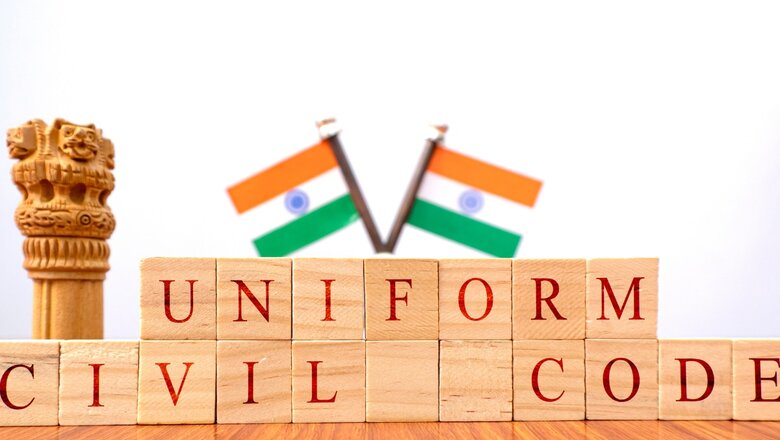
views
On a day the Uniform Civil Code Bill is set to be tabled in the Uttarakhand Assembly, the Qureshi household in Dahanwala locality of Dehradun is the centre of activity. Muslim women from the neighbourhood have come to ask about the well-being of an injured Rubina Qureshi, but the discussion veers towards the contentious bill.
Rais Fatima, a social worker, thinks the bill is only meant to alienate Muslims further. “If they really cared about empowerment of Muslims, they should have made provision for maintenance of divorced women. At the root of all problems that women face is their economic dependence on men,” she says.
Rubina Qureshi, an IT professional based in Delhi, argues that the debate around UCC has unnecessarily been made Muslim-centric. “Wont UCC affect Adivasis, Hindus in Rajasthan, Northeast, South India? Why is this being spoken about as a ‘target Muslims’ project?” she asks.
Direct questions about the practices of polygamy, halala, iddat, that the UCC bill seeks to outlaw, are met with justifications about why these provisions were made part of the Muslim Personal Law.
Teacher Faitma Qureshi is a young Muslim woman who claims she’s neutral on the question of polygamy. “I understand the opposition to polygamy. As an educated Muslim woman, I would want my husband to be married only to me, but I also understand why polygamy is part of my religion. There are economic reasons behind it,” she says.
“Polygamy has been misunderstood. Earlier, women, in terms of sex ratio and economic dependence, were dependent on men and so polygamy provisions were made. Today, I am taking a neutral stance on this. If economics is the reason (some women can’t sustain themselves), then polygamy can be allowed,” she adds as her peers nod in agreement.
Ruksana Qureshi, a homemaker, claims polygamy “in any case is a waning phenomenon”.
“I agree that polygamy should not be allowed, but look around. How many men these days have multiple wives? Women themselves are more aware of their rights now,” she says.
But the group refuses to concede that a law that bans practices like halala and iddat is the need of the hour. “Halala is being misused by some and misunderstood by other communities. Shariat doesn’t prescribe halala as bedding another man before remarrying your first husband. This misuse is haram,” she says.
Naeem Qureshi, president of Muslim Seva Sanghatan, says: “Iddat was meant to be a 40-day period to check if the widowed or divorced woman is pregnant or not. Why is there a problem with this? A pre-arranged halala as a means to marry the first husband is haram. The way forward is to spread awareness about what is right and wrong by educating the community, not by forcing a law from above,” he says.
Mufti Shamum Qasmi, head of the Madrassa board, supports the government’s move to bring in a common civil code. Speaking to News18, he says most community members are ignorant about the law or their rights. “Their ignorance is being misused by some who call themselves Islamic scholars. An atmosphere of fear is being created unnecessarily. The proposed law is in no way un-Islamic.”
The Pushkar Singh Dhami government is aiming to get the bill tabled and passed in Uttarakhand Assembly on Tuesday amidst stiff opposition from the Congress and Opposition parties. Leader of Opposition Pritam Singh has resigned from the Business Advisory Committee in protest. The CM, however, has maintained he is firm on passage of the bill, calling it a “historic day not just for Uttarakhand, but also for India”.



















Comments
0 comment